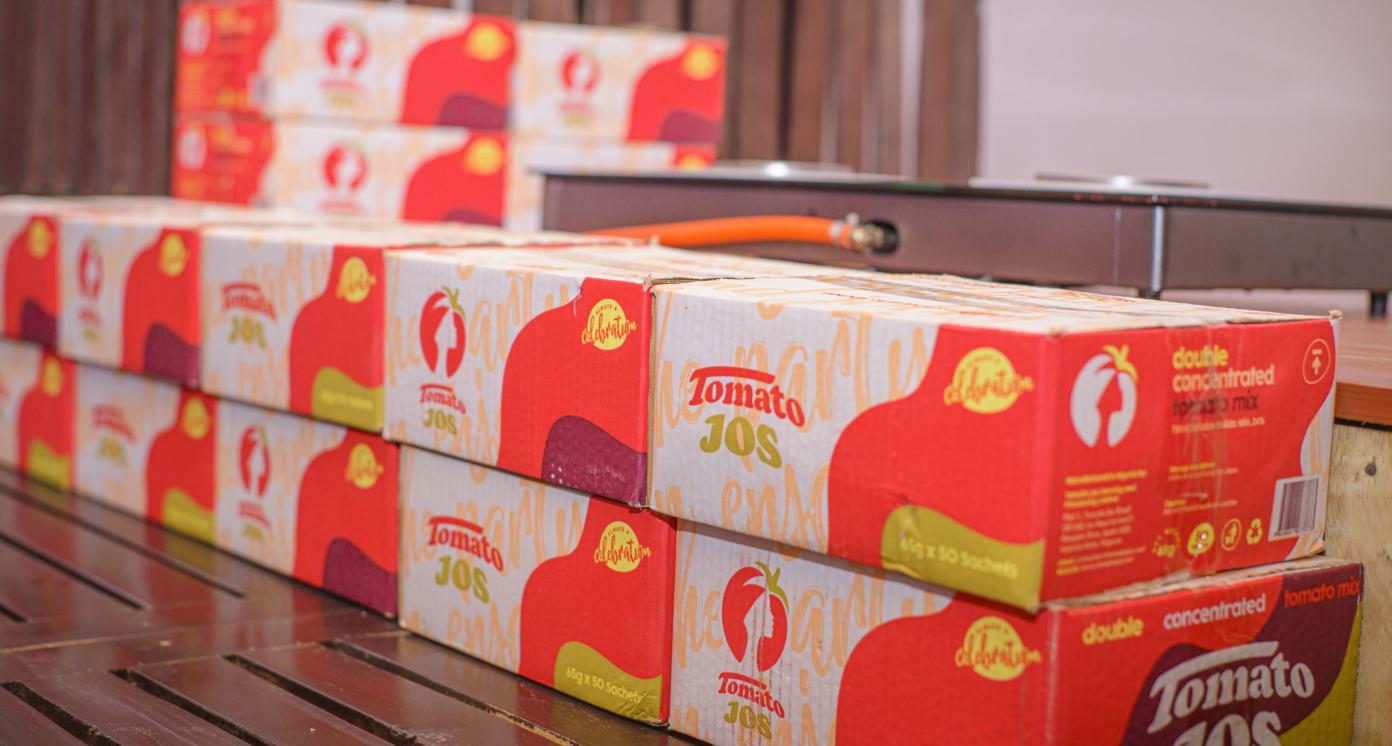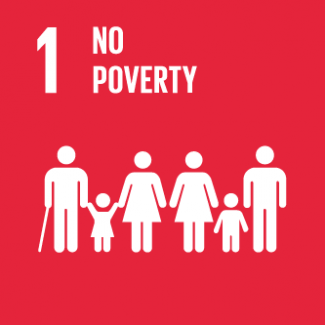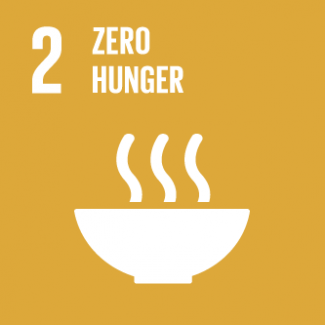Nigeria is the largest producer of tomatoes in West Africa. According to the National Horticultural Research Institute (NIHORT) the country is responsible for 65% of the tomatoes produced in the region and is the 14th largest producer of tomatoes in the world (see here). Nigeria is also one of the largest importers of tomato paste in the world, with a retail market size of USD 500 million. However, smallholder farmers in Nigeria face low access to capital throughout the season (especially to fuel their pumping machines), inefficient irrigation technologies, low availability of high-quality inputs, security concerns that may limited access to farmland; and low access to appropriate farmland. The latter is a great challenge specifically for women who make up 60% of TOMATO JOS’ partner smallholder farmers.
Based in Kaduna and founded in 2014, TOMATOS JOS Farming and Processing Limited is a social enterprise from northern Nigeria that makes high quality retail-packaged food products for consumers across all income brackets, sourcing raw materials from a network of smallholder farmers who have been transformed from subsistence growers to profitable commercial farmers. TOMATO JOS' value proposition comprises a vertically integrated production and farming model (plant nursery, nucleus farm, out-grower farming network, processing operations) which aims to ensure quality and volume of supply. The company sources over 95% of its tomatoes from smallholder farmers. Over the years, the company has developed a proprietary model to partner with farmers that places emphasis on high yields and mutual profitability for all parties. By aggregating farmers together onto the TOMATOS JOS land allocation, the company can provide better services and agronomical oversight to thousands of farmers, making everyone more successful and profitable.
The company has three main revenue streams:
- Tomato Mix Sales. Production and sale of retail-packaged “tomato mix:” tomato paste combined with other additives. Tomato mix is a top fast-moving consumer goods item in Nigeria and a staple in the local cuisine. Currently, demand for Tomato Jos tomato mix far exceeds production capabilities.
- Smallholder Lending. A lending programme that provides smallholder farmers with a package of inputs and services to grow tomatoes and grains commercially. Tomato Jos places a markup on these inputs and services, thus generating revenue.
- Grain Trading. Farmer loan repayment is made “in kind” (i.e., in the form of tomatoes or unprocessed grains). The tomatoes are used to make tomato mix. However, Tomato Jos does not process grains at this time; instead, it sells all grains to other companies at a higher price than the offtake price received from the smallholder farmers.
TOMATO JOS employs 200 people, 23% of which are women. The company’s impact metrics include:
- 60% of small-holder farmers in the company’s network are women farmers.
- Off-take contracts with 1000+ small-holder farmers.
- Increased yield for tomato farmers: average of 41 tons per hectare for Tomato Jos farmers compared to Nigeria average of 5 tons per hectare.
- Increased yield for maize farmers: average of 6.4 tons per hectare for Tomato Jos farmers compared to Nigeria average of 1.5 tons per hectare.
- 60% of c-suite positions are occupied by women.
The company aims to become a top-three packaged tomato brand in Nigeria, with at least 10% market share and at least 50% of raw materials sourced from smallholder farmers. The tomato paste market in Nigeria is estimated to be USD 500 million, USD 49 million in the regional market area of Kaduna and Abuja. TOMATO JOS plans to increase its operational capacity in tomato processing, as well as its capacity to source high quality tomatoes, which is uniquely addressed by its integrated farming model.
It plans to increase and improve its network of partners farmers via (i) Smallholder Model Farms: Incorporate sustainable soil health practices (crop rotation, etc.) and drip irrigation education into the smallholder model farm programme within TOMATOS JOS’ land allocation; and (ii) Smallholder Outgrower Farms: Accelerate the scale-up of the smallholder outgrower farms programme.
To date, TOMATO JOS has raised USD 8.3 million in a series A equity round. Currently, the company is looking for USD 6 to 8 million in equity and USD 1.5 million in debt as well as partnerships with international organizations and non-profits to supply them products as a vendor. The company is also open to partnerships to scale its smallholder program through grants or concessionary funding, along with highly operational and motivated staff with the requisite experience for key managerial roles.
TOMATO JOS is a finalist of the EU-UNDP’s Growth Stage Impact Ventures (GSIV) in Nigeria, in the food and beverage sector. The GSIV takes the Nigeria SDG Investor Map one step further by identifying through a highly competitive process enterprises in Nigeria that have developed at-scale products and services that contribute to the SDGs while achieving commercial success and are committed to embed impact considerations into decision-making. By putting the spotlight on and supporting these ventures, UNDP aims to bring forward evidence of the existence of pipelines of investable ventures that can advance the transition to SDG-aligned investments in Nigeria and more broadly, in Africa.
Learn more and get in touch with TOMATO JOS: www.tomatojos.net


















